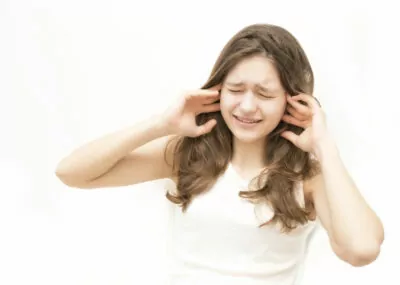
Question: I work in a loud environment. Could this be contributing to my vestibular symptoms or causing my vestibular issues?
Could Your Loud Work Environment Be Contributing to Your Vestibular Symptoms?
If you work in a loud environment, such as a factory, construction site, music venue, or busy restaurant, you may be wondering whether all that noise could be affecting more than just you’re hearing. Could it also be contributing to your dizziness, balance problems, or other vestibular symptoms?
The short answer is yes, it’s possible.
How Loud Noise Affects the Inner Ear
The inner ear is home to both your auditory system (which processes sound) and your vestibular system (which helps you maintain balance and spatial orientation). These two systems are closely connected, sharing the same fluid-filled chambers and nerves. That means damage to one part of the inner ear can sometimes affect the other.
Prolonged or repeated exposure to loud noise can lead to:
- Cochlear damage (hearing loss or tinnitus)
- Vestibular dysfunction, including symptoms like vertigo, imbalance, or sensitivity to motion and sound
- Endolymphatic hydrops, a condition related to fluid pressure changes in the inner ear, is sometimes seen in Ménière’s disease
Studies have shown that noise trauma can impact the vestibular hair cells just like it does the auditory ones, potentially leading to vestibular symptoms like dizziness, disorientation, or unsteadiness.
Sound Sensitivity and Vestibular Disorders
If you already have a vestibular disorder, such as vestibular migraine, benign paroxysmal positional vertigo (BPPV), or persistent postural-perceptual dizziness (PPPD), you might also be more sensitive to sound. Loud environments can overstimulate your brain, trigger episodes, or make existing symptoms worse.
Common symptoms triggered or worsened by noise include:
- Feeling dizzy or off-balance
- A sense of motion, even when still
- Visual discomfort or difficulty focusing
- Fatigue, brain fog, anxiety, or irritability
What You Can Do
If you suspect your loud work environment is affecting your vestibular health, here are some steps to consider:
- Wear hearing protection, such as earplugs, noise-canceling earbuds/headphones, cotton balls
- Take regular breaks in quiet areas to reset your nervous system
- Perform diaphragmatic breathing to assist with calming your nervous system and ultimately the symptoms
- Talk to your employer about modifications to assist with the reduction of noise exposure
- Consult a vestibular specialist (ENT, neurologist, or vestibular physical therapist) for a thorough evaluation to determine: the extent of your deficits, treatment options, and potential modifications
- Track your symptoms to identify patterns related to noise exposure
The vestibular system can be sensitive; therefore, deficits can truly impact your quality of life. Protecting it is key when you work in an environment where noise is constant or overwhelming.
Bottom Line:
Yes, loud noise in your workplace can potentially contribute to or worsen vestibular symptoms. If you’re struggling with balance issues, dizziness, or sound sensitivity, it’s worth exploring how your environment might be playing a role. Take steps to protect your inner ear health and quality of life.
Reviewed by Denise Schneider, DPT
